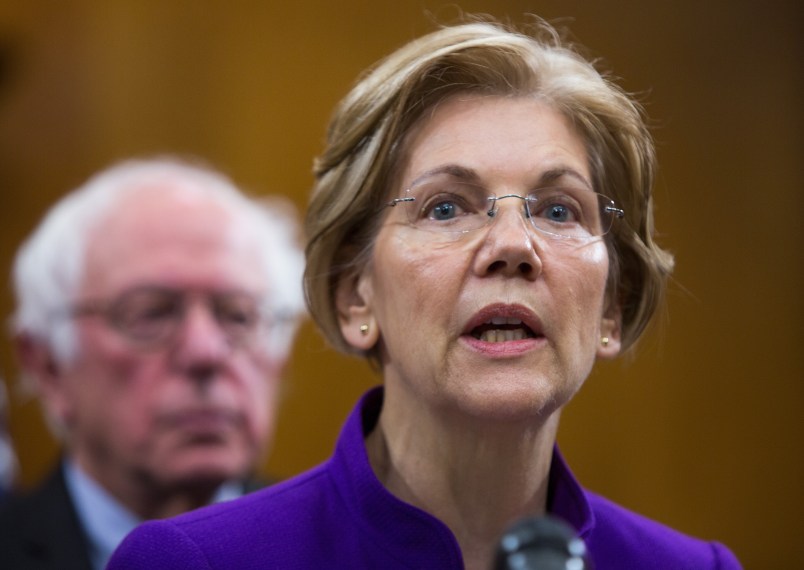Sen. Elizabeth Warren (D-MA) pleaded with her fellow Democratic candidates and the CNN hosts to stay focused on the broad strokes of the health care debate: Democrats want to expand it, while the GOP wants to take it away.
But nobody wanted to pay attention.
“Look, let’s be clear: We are the Democrats,” she said. “We are not about trying to take away health care from anyone. That’s what the Republicans are trying to do.”
“And we should stop using Republican talking points in order to talk with each other about how to best provide that health care,” she added.
But the debate immediately devolved into decades-old GOP talking points, after CNN host Jake Tapper asked if she was also “with Bernie on Medicare for all when it comes to raising taxes on middle class Americans to pay for it?”
From there, the discussion moved away from the contrast in aims between the two major parties and towards an internecine battle among Democrats, jockeying to distinguish themselves on a key issue.
Montana Gov. Steve Bullock declared that he would not “support any plan that rips away quality health care from individuals.”
“It used to be Republicans that wanted to repeal and replace, now many Democrats do, as well,” Bullock added.
Others chimed in with similar perspectives that cast attempts to expand access to health care as an effort to restrict it, particularly after the debate hosts framed follow-up questions as whether the candidates were “willing to raise taxes on middle class Americans in order to have universal coverage.”
The result was that instead of focusing on the difference in broad aims and how to achieve them, the debate descended into policy specifics that took the focus off of Republican attempts to repeal the Affordable Care Act, empower insurance companies to deny coverage to people with pre-existing conditions, and prevent those under 26 from using their parents’ health insurance.
Take a look at how weedsy the debate got, and how quickly. Within minutes, South Bend Mayor Pete Buttigieg was calling the gap between Medicare for all and a Medicare buy-in a “distinction without a difference.” Former Rep. Beto O’Rourke (D-TX) proclaimed that “the middle class will not pay more in taxes to ensure that every American is guaranteed world class health care.”
Sen. Amy Klobuchar (D-MN) called for a public option, before Sen. Bernie Sanders (I-VT) and former Rep. John Delaney (D-MD) later descended into a fight over the issue.
Delaney criticized the proposal along GOP lines, saying that it would lower the quality of health care while creating a “two-tier market.”
Delaney, a former Maryland congressman who held health care investments, added that he had “done the math,” before Sanders interrupted.
“Maybe you did that [math] and made money off of health care, but our job is to run a non-profit health care system,” Sanders said.
The audience roared, but the broader point arguably stayed unseen.






